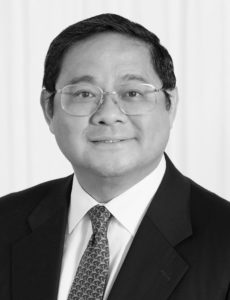
Leading Asian newspaper publishes ICC op-ed on WTO trade talks
The South China Morning Post today published the following op-ed by Victor K Fung, Chairman of ICC's World Trade Agenda Initiative, and former ICC Chairman (2009-2011).

New World Trade Organisation director general Roberto Azevedo has been in office barely a month, but already he has helped reboot the stalled Doha Round of world trade negotiations.
Signs of his early progress could not have come sooner. The pressure is on for the WTO to seal a deal at its December ministerial meeting in Bali that will restore faith in its negotiating ability, validate the multilateral trading system and provide a much-needed boost to the global economic recovery.
Azevedo has declared that the WTO should return to the centre of the world stage and the global search for jobs and growth. Amid a plethora of regional and bilateral trade agreements, each well justified by its own merits and advantages for signatories, but each adding more layers of complexity to world trade, the centrality of the multilateral trading system is under challenge as never before.
Azevedo’s words about the centrality of trade should resonate strongly in Asia, where trade has played such a major part in the region’s growth and development. That is why ministers and negotiators at the Apec summit, currently being held in Bali, should use the opportunity to galvanise support for breaking the impasse that stalls the Doha Round. For businesses of all sizes watching the proceedings, it is clear that efforts should focus on delivering the WTO trade facilitation agreement.
This agreement, which is part of the Doha package, would simplify and harmonise dozens of administrative procedures and standards that dictate how goods cross borders or are handled in customs. It would drastically cut red tape that consumes precious resources for governments and companies, while slowing down supply chains, creating opportunities for corruption and increasing the cost of goods by an estimated 5 to 15 per cent.
Many of these efforts will bear immediate fruit in Asia, given our dependence on international trade. Indeed, much of the work towards the creation of the Asean Economic Community, the Trans-Pacific Partnership and other regional deals focuses on measures to facilitate trade and investment between members. While these and other bilateral and regional trade agreements include trade facilitation provisions, they do not provide consistency across the world. Only a multilateral deal under the auspices of the WTO could do that.
The economic benefits of a WTO trade facilitation agreement could be substantial. According to a recent Peterson Institute study, the deal could provide a one-time boost to global GDP of US$960 billion and increase exports by about US$1 trillion. It could also create 18 million jobs in developing countries and 3 million in developed nations. Developing countries would reap most of the gains in terms of jobs, GDP growth and exports, making this a true pro-development measure in line with the Doha Round principles.
These countries would be given an extended deadline for implementing the agreement. Clearly, the needed upgrades and investments are substantial, covering infrastructure, new regulations, training, equipment upgrades and institutional reform. But they would be given access to financing and technical expertise to help them transform their trade regimes. These benefits would be felt across the entire region.
Azevedo has appealed to WTO members for flexibility as they negotiate the trade facilitation deal ahead of the December ministerial meeting in Bali. He is right that the significance of this exceptional harvest from the Doha Round would stretch far beyond the letter of the agreement.
In addition to restoring faith in the WTO, success in Bali with trade facilitation would encourage engagement on the many other items that have been on hold, such as greater market access for least developed countries and opening of global trade in services. It will also add relevance and provide the necessary breathing space to the emerging discussions on the future of the organisation. This debate will, of course, address the merits of the multilateral process and its rules, as well as bilateral and regional agreements.
All of these issues deserve progress and attention but first we need to find a way through the Doha Round. We all know that it would be difficult to conclude the Doha Round in its entirety. Certain provisions are just too contentious, and the world has changed dramatically since the round began in 2001. The key to progress is to pragmatically identify and carve out agenda items where basic agreement has been reached and which would create widespread good for the world, in comparison to the costs.
An agreement on trade facilitation would meet these criteria. The road map to completing the necessary negotiations is clear to all involved, as are the many benefits. Bali beckons. What are we waiting for?
Dr Victor K. Fung is chairman of the International Chamber of Commerce’s World Trade Agenda Initiative, and former International Chamber of Commerce chairman (2009-2011)
The article may also be viewed on the South China Morning Post’s website.

